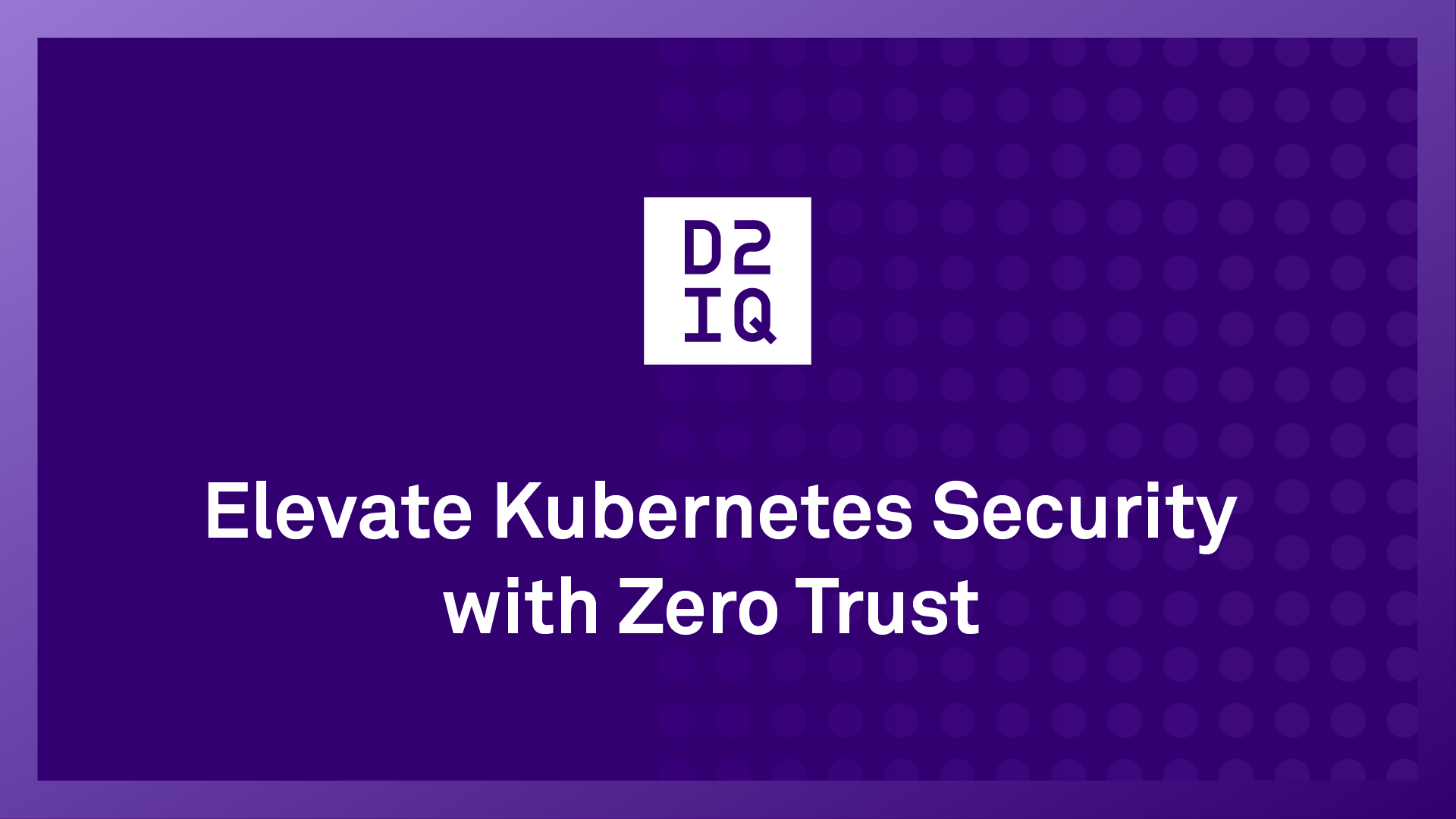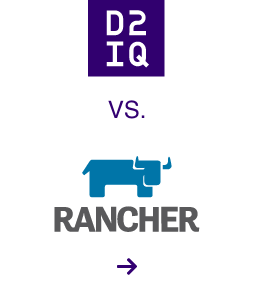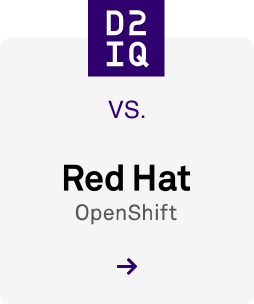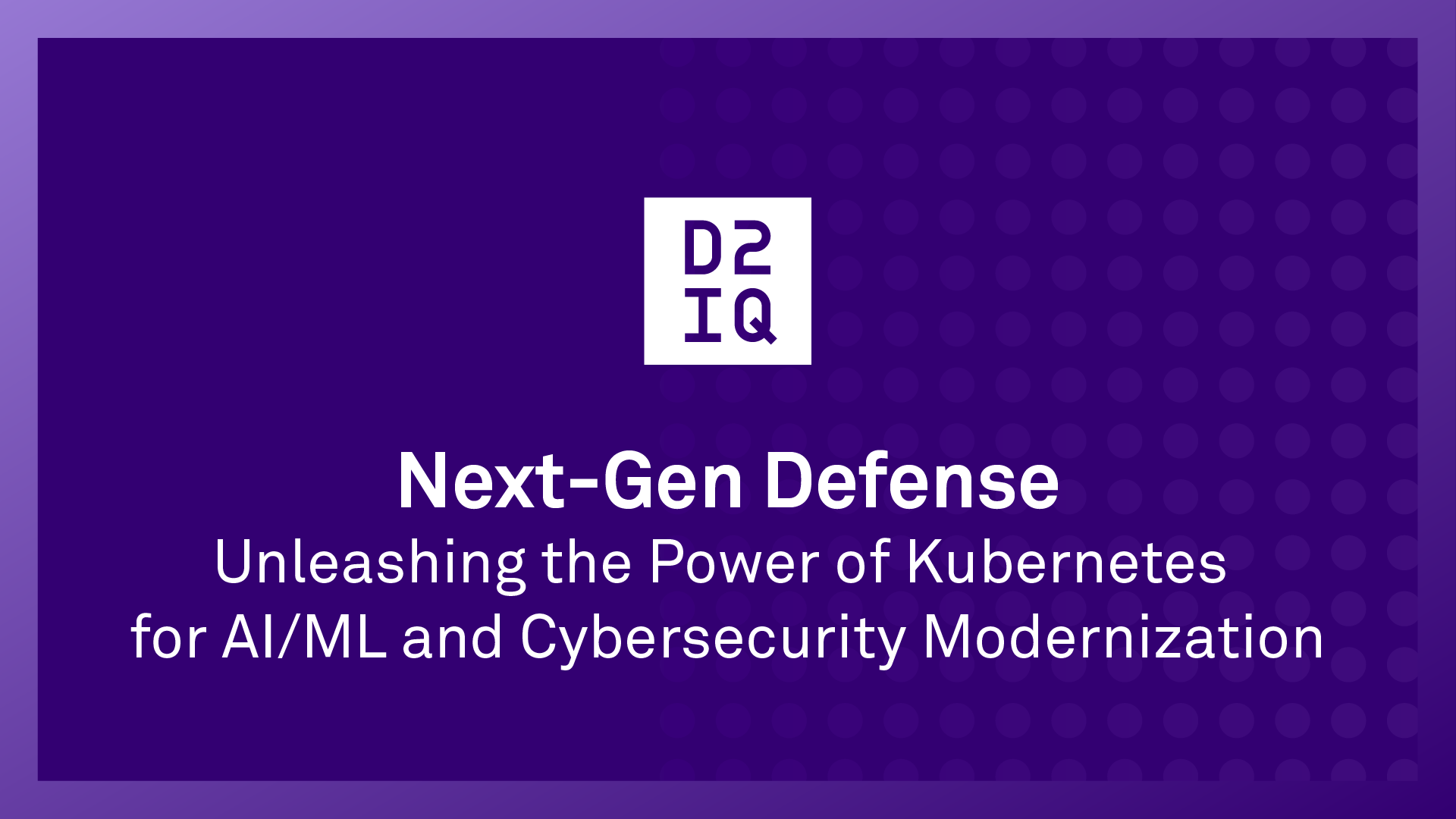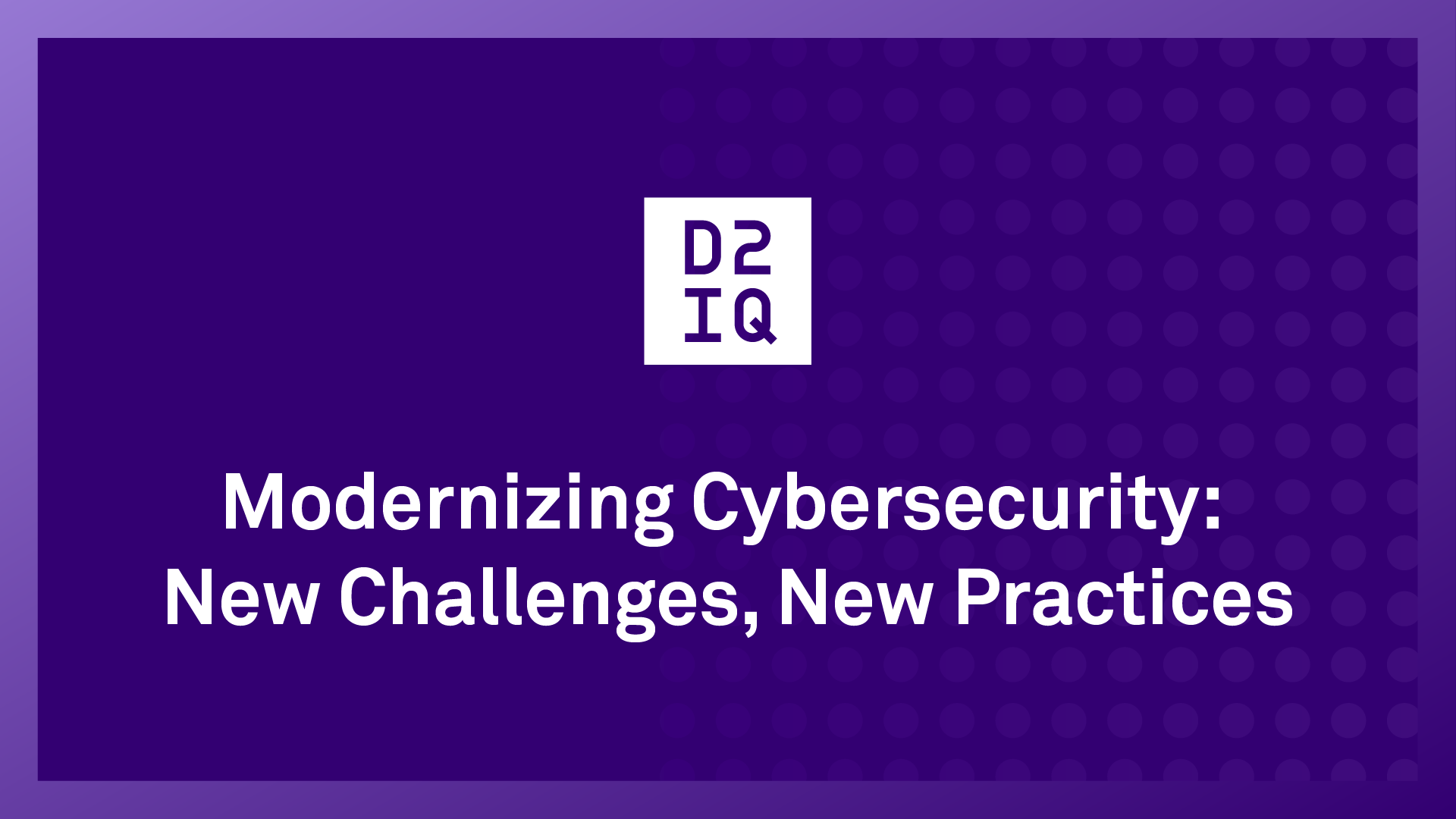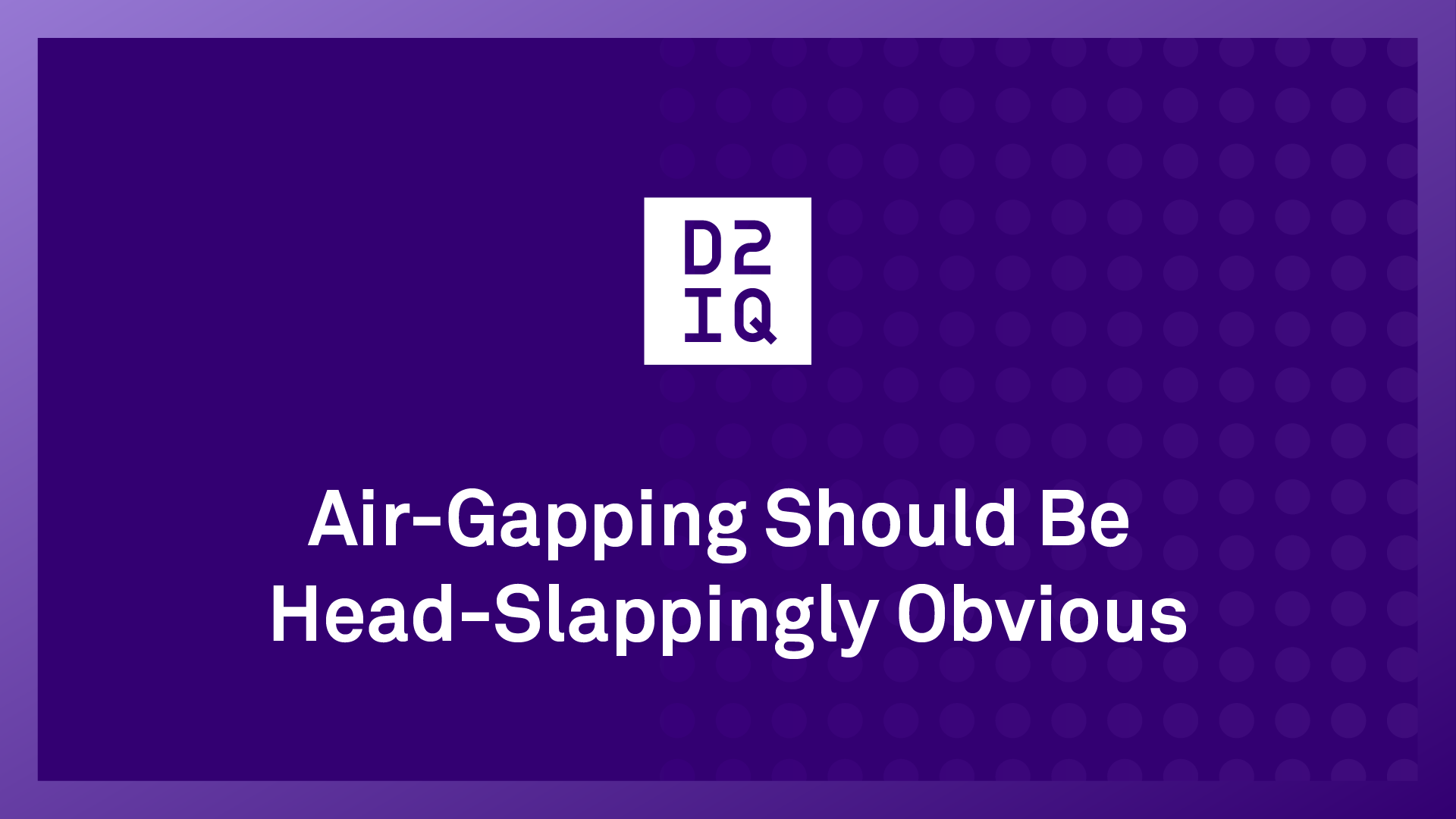The theme of this year’s Rocky Mountain Cyberspace Symposium was "
Post-Pandemic Zero Trust." In General Dynamics Information Technology’s 2022 report, “
Agency Guide to Zero Trust Maturity,” 63% of respondents from federal civilian and defense agencies said they believed their agencies would achieve specific zero trust security goals by the end of fiscal 2024.
Although Kubernetes was initially designed with basic
security capabilities, broad and rapid adoption and an increasingly sophisticated threat landscape have made Kubernetes more vulnerable to attacks. Developers and security experts are now tasked with extending Kubernetes’ built-in security to effectively protect against cyberattacks that are more complex, volatile, and frequent.
The previous “trust but verify” approach has in many instances has proven ineffective for the complex distributed nature of cloud computing, so
Kubernetes security is being elevated to the “never trust, always verify” ideology of the zero-trust model to provide greater protection to organizations.
Basic Concepts of the Zero-Trust Model
Rooted in the principles of “never trust, always verify,” the zero-trust model is based on three fundamental concepts:
- Secure network: Always assume that the network is hostile and compromised. Internal and external data and information on the network is constantly exposed to security threats.
- Secure resources: Any source of information that exists on the network should be viewed with suspicion, regardless of the location.
- Authentication: Users, devices, and traffic from internal or external networks should not be trusted by default. Zero trust should be based on access control using the right authentication and authorization.
Three Best Practices for Zero Trust
Kubernetes offers flexibility, but this advantage also adds complexity, introducing many configuration options for services and workloads to run in different network environments. Following are three best practices of the zero-trust model for Kubernetes deployments that can improve security.
Optimize Software Configuration and Access Permissions
Teams need to deliver consistent configuration for services and cross-cluster operations. Although Kubernetes provides diverse configuration options, a plethora of options increases the chances of security issues. Using the zero-trust framework, organizations can continuously validate and deploy services to multiple clusters without security compromises. By double-checking these configurations before granting them any security permissions to applications and services, organizations can harden the security of even the most distributed Kubernetes clusters.
Another way to improve Kubernetes security using the zero-trust model is to limit software to only the permissions and capabilities it needs to function. While it’s not always easy to determine the exact permissions and capabilities software will need, a better understanding of these elements will reduce security risks. For a container orchestration environment in the cloud, it is more important to give limited permissions and capabilities compared with local server environments.
Log and Monitor Data
It is important to provide essential security data that enables developers and security experts to measure, predict, avoid, and defend against potential security risks. For example, organizations should log user IDs or group IDs that services recognize, especially for the cluster environment. This ensures organizations are using the required IDs to help service and software teams identify anonymous attacks more quickly. Logging records provide security traceability in the cloud-native environment.
With sufficient security data, teams can rethink and optimize their security practices and application updates to cope with the changing technology environment, helping ensure continuous protection from attacks.
Focus on People and Process Management
Anyone with access to an organization’s database and containerized applications is a potential Kubernetes security threat. Therefore, training insiders to avoid potential internal threats is essential. Organizations can start by logging and monitoring platform data, while making all stakeholders aware of the various attack strategies prevalent in the market.
In addition to the proper training, optimizing security processes in day-to-day operations can help support the zero-trust model and minimize the impact of cyberattacks on enterprise services in the cloud. Some recommended security processes include an active review of network management, firewall checklists, and regular checks of containers and software images.
Because air-gapped deployments provide a military-grade security level for complex deployment patterns in the cloud, I recommend that organizations combine these operational processes with air-gapped implementations, giving you an extra security level for your Kubernetes projects.
Create a Zero Trust Security Culture
Security can no longer be an afterthought when deploying and managing Kubernetes in production environments. Breaches, disruptions, and data theft are serious cybersecurity issues that can have a detrimental impact on any organization.
Zero-trust practices like data and information logging, employee security training, and process optimization are effective and practical means of securing Kubernetes projects and IT infrastructure. By implementing these practices, organizations can better secure Kubernetes deployments.
Following the zero-trust approach will free developers and operators from worrying about cluster and infrastructure security issues while enabling security teams to focus on security instead of getting lost in Kubernetes configurations.
